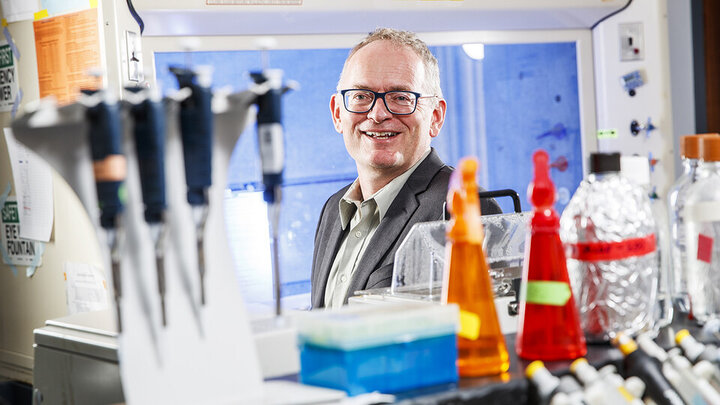Yingying Wang describes herself as a spring wound tightly during the early years of her career at the University of Nebraska-Lincoln while she focused on working toward being promoted to associate professor and granted tenure. Now that she’s achieved that, she feels a different energy.
“This is a huge career milestone that means a lot to me,” Wang said. “It’s a nice assurance of all your past work, and a big push for your future work. It’s a pedal to push you forward.”
On her first visit to Nebraska, Wang said she was moved by the city of Lincoln and the friendliness of the people she encountered. The welcome she received extended to the university when she began as an assistant professor in the Department of Special Education and Communication Disorders .
“The people are why I came here,” Wang said. “The people at Nebraska are kind and supportive, and that’s an environment I enjoy.”
Wang arrived at Nebraska in 2016 with more than a decade of experience in advanced neuroimaging techniques and an eye toward optimizing learning for all children by better identifying factors that affect brain development.
Her research lab – Neuroimaging for Language, Literacy and Learning Laboratory (NL3) – currently has two lines of research utilizing brain imaging to advance the understanding of neural plasticity and brain development to support early intervention services for children.
One project, Brain Activation of Cochlear Implant Candidates (BACIC), aims to identify brain-based factors that predict future hearing improvements among candidates for cochlear implants. The second project, Brain Imaging of Reading Development (BIRD), aims to identify the unique and comprehensive neural and behavioral profiles of young children with hearing loss during reading development.
As she begins the next phase of her career and furthers the research and collaborations she has built thus far, Wang continues to be grateful for the people around her.
“The UNL environment is very supportive and encouraging,” Wang said. “I’m very fortunate to have the support from the University of Nebraska system.”




